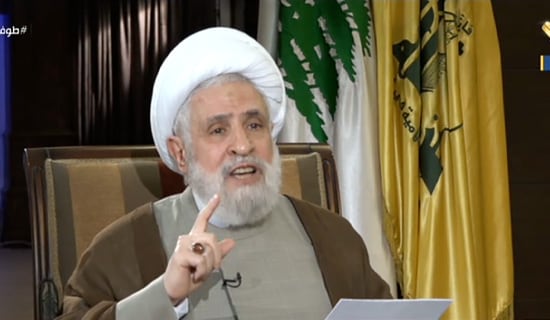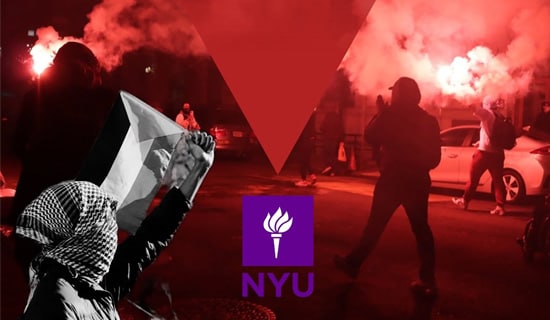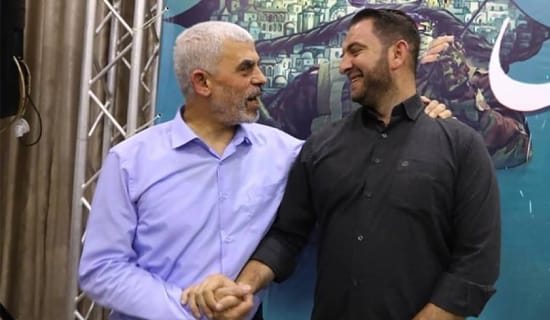In an address to the Middle East Forum, a think tank headed by American Orientalist Dr. Daniel Pipes, Coptic liberal writer Magdi Khalil, head of the Middle East Freedom Forum, claimed that Egyptian President Mubarak's regime is perpetrating state terror against Egypt's Copt community and is trying to deflect the Egyptian people's anger towards the regime by directing it toward Israel, the U.S., and the Copts. He said that it is in the West's interest to support the Copts in their struggle for rights, since they are trying to prevent Egypt from becoming a jihadist Islamist state hostile to Israel and the West.
In response to Khalil's statements, Egyptian writer Hanan Suleiman penned a critical article in the daily Roz Al-Yousef. She stated that the Coptic issue should not be resolved by eliciting outside help but through internal dialogue, and that, by requesting the help of the U.S. and Israel, the Copts would only strain their relations with the Muslims in Egypt.
The following are excerpts from Khalil's speech and from Suleiman's article:[1]
Khalil: Mubarak Incites the Public against Copts
Addressing the Middle East Forum via videoconference, Khalil said: "President Mubarak is determined to perpetuate his rule and persist in his corruption, and therefore he is striving to deflect the public's rage against his corrupt regime and direct it toward Israel, the U.S., and the Copts by means of a three-pronged tool of incitement consisting of education, media, and religious discourse. It is no wonder, then, that about a third of the terrorists in the world came out of Egypt, and moreover, that most of the terrorist leaders and the ideologues of the terrorist doctrine did as well. Egypt, Saudi Arabia, Pakistan, and Iran are the international Islamic incubators of worldwide Islamic terrorism. [When it is difficult to carry out terrorist attacks] in Israel or the U.S., [the public channels its rage] into verbal violence or terrorist activity in [other parts of the world]. But it is easiest [for an Egyptian] to use violence against his Coptic neighbor.
"After over 30 years of a policy of encouraging Islamic extremism in Egypt, this extremism has penetrated the heart of state institutions, with many extremists now serving in [positions of] authority in the police, security, and intelligence apparatuses, judicial system, the Legislative Assembly, and all the [other] state institutions… This is how the crimes committed against Copts, at first perpetrated by Islamic extremists, have now become state crimes in which its various institutions take part. The true definition of these crimes is 'state crimes.' In terms of international law, the organized persecution, the ongoing murder, the rape of girls, and the intimidation – constitute crimes against humanity…
SUPPORT OUR WORK

"The Copts are facing the same terrorism that the U.S. faced on September 11 and that London, Madrid, Moscow, Bali, Mumbai, and Tel Aviv have faced. The difference is that the Copts have been facing this Islamic terrorism for decades, and that it is carried out by the state itself. In recent years, the gap between the regime in power and the Copts, and between Muslims and Copts, has widened considerably. The Copts have lost faith in Egypt's state institutions, which take part in their oppression instead of helping to resolve it."
Supporting the Copts Is a Western, U.S., and Jewish Interest
"Most of the Copts support the international war on terrorism, while most Muslims see it as a war against Islam and Islamic policy. The Copts support the separation of church and state, while most Muslims believe that integrating the two is one of the precepts of Islam… Most of the Copts like the U.S., while most of the Muslims hate it. Most of the Copts want Egypt to deal solely with its own problems and concerns, while most Muslims think Egypt has a fundamental role in aiding the Arabs and Muslims. The Copts for the most part support peace with Israel and are interested in burying the hatchet, since all the captured Egyptian lands have been restored in full, while the national security apparatus, and with it the Muslim public, see Israel as Egypt and Islam's number one enemy.
"What I mean to say is that strengthening the Egyptian Copts is a Western, American, and Jewish interest, since it is the large Coptic bloc that is trying to prevent Egypt from becoming a jihadist Islamist country hostile to the West and to Israel. We call upon all the countries of the free world to help us secure our rights in Egypt, and to pressure Mubarak's regime to stop persecuting us..."[2]
Hanan Suleiman in Response to Khalil's Statements: The Copts in the Diaspora Are Harming Their Brothers in Egypt
Hanan Suleiman, a writer for the Egyptian daily Roz Al-Yousef, criticized Khalil's statements, writing: "Some of the Copts in the diaspora have become accustomed to sounding off in the foreign [media], thinking that by doing so they are solving the problems facing the Copts in Egypt, despite the fact that logically, the opposite is true. Even if we assume that foreign pressures will ensure the rights [that the Copts] are demanding through extreme right-wing American channels or through Israeli channels, they will undoubtedly have a negative impact on relations between Muslims and Copts in Egypt, and give many people the impression that a certain group in society is eliciting outside help in order to dictate a certain policy which serves [its interests]. The only way out of this is internal dialogue. The policy of strengthening [oneself] by means of foreign [help] constitutes an ongoing problem for the Copts in Egypt...
"What Coptic struggle is [Khalil] talking about, when he himself turns to the U.S. and Israel for help in protecting the rights of the Copts in Egypt? Is this not an act of sedition? Khalil claims to have a steadfast position vis-à-vis Israel, and he tells [Israel's] American allies that the Copts, unlike the Muslims, wish to end the hostilities with Israel, since all the Egyptian lands have been liberated. Does this not mean normalization?... Does [Khalil's] steadfast position vis-à-vis Israel include the article he wrote in March 2006 in the journal MERIA, which is published by an Israeli think tank directed by the extremist Barry Rubin, and the article [he] wrote several years ago for the website Think Israel, about the kidnapping of Coptic girls and their forced conversion to Islam?... What sort of steadfastness is that?
"Is it possible that Magdi Khalil, who lives in the U.S., is unaware of the tendencies and policies of the Christian-Zionist forum at which he spoke? Otherwise, how is it possible to justify his speaking in such a dubious [forum]? What are the mutual interests of this extremist forum and certain Copts in the diaspora...? And the most important question is, where is the proof that the Middle East Freedom Forum – run by Khalil in the diaspora and by Shiri Alber in Egypt – does not itself serve questionable ends, despite the fact that ostensibly, it calls for tolerance and acceptance of the other, whomever he may be, Muslim or Christian?... And what comes next, after foreign pressures? What will be the outcome of this method of 'Coptic struggle,' as Khalil calls it? Will the rights of Christians be [granted] at the expense of social cohesion? Is this what the activists in the diaspora want?"[3]
[1] It should be noted that portions of Khalil's speech to the Middle East Forum appeared in the independent Egyptian daily Al-Masri Al-Yawm. Khalil claimed the daily misquoted him and took his statements out of context. When Al-Masri Al-Yawm failed to print the response he sent, he published an article in the opposition paper Al-Dustour, in which he stated that, since 13% of the U.S. Senate and dozens of other American Congressmen and politicians were Jewish, maintaining relations with the Jews was in the interest of the Copts. Al-Masri Al-Yawm (Egypt), March 9, 2010; Al-Dustour (Egypt), April 2, 2010.
[2] Al-Dustour (Egypt), March 11, 2010.
[3] Roz Al-Yousef (Egypt), May 10, 2010.




